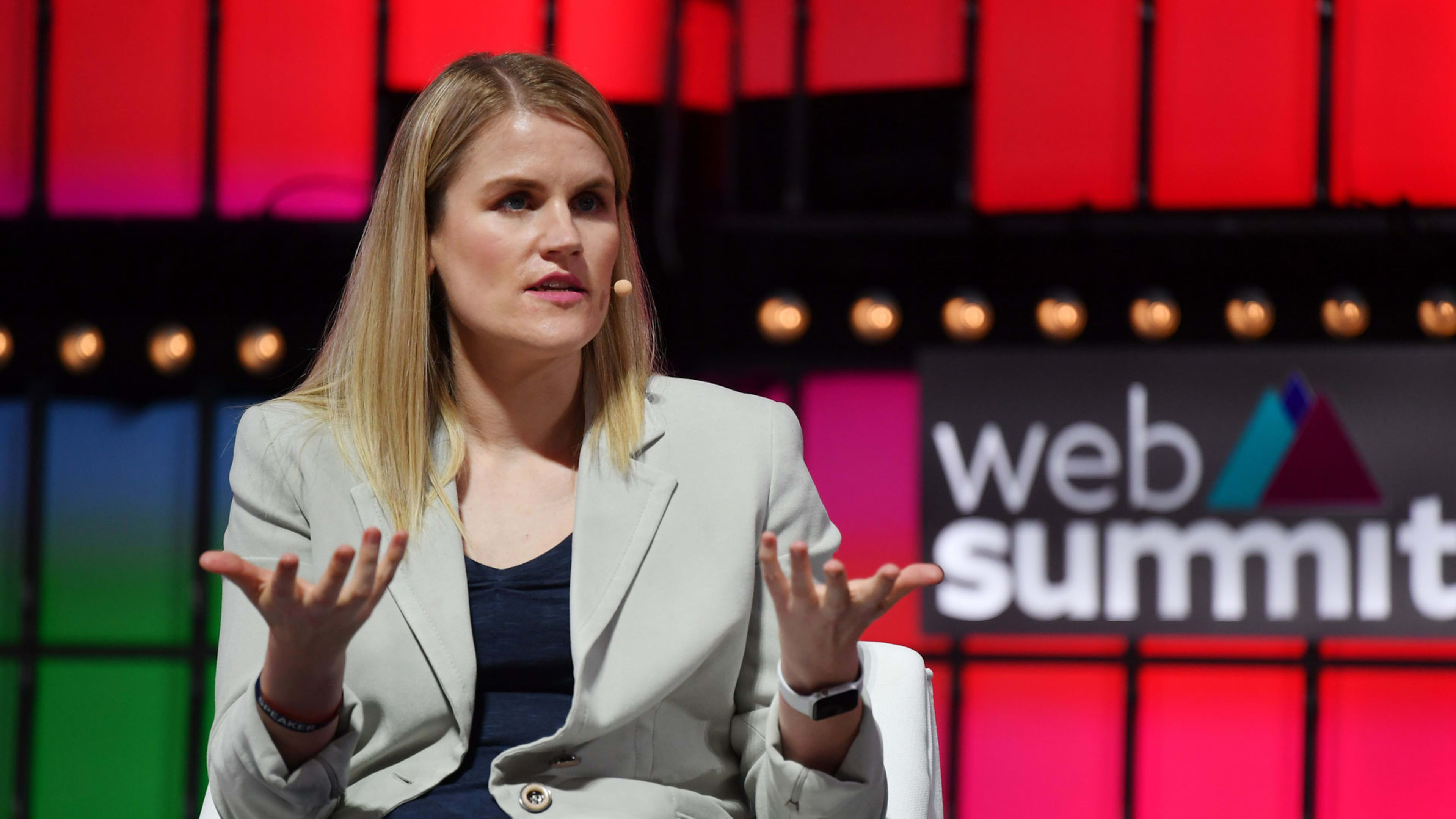On Monday evening at the Web Summit conference in Lisbon, a crowd of pre-pandemic proportions packed the Altice Arena for the event’s opening session. The night’s headline speaker wasn’t some tech executive. Instead, ex-Facebook employee turned whistleblower Frances Haugen talked about her decision to release thousands of documents from her former employer. The revelations in those documents have led to a flurry of investigative reports into Facebook’s own research into its impact on society, as well as increased calls for legislative intervention to minimize harmful effects. She spoke alongside Libby Liu, the CEO of Whistleblower Aid, the nonprofit Washington DC legal organization that’s representing her.
Haugen told interviewer Laurie Segall of Dot Dot Dot Media and 60 Minutes+ that she’s a private person who didn’t relish the spotlight she’s stepped into. “It is definitely a little overwhelming,” she said. “I’m glad that I’ve had an opportunity to bring this to light, because there’s been a pattern of behavior at Facebook where they have consistently prioritized their own profits over our general safety. And I’ve felt very grateful that people have taken seriously the evidence that I’ve disclosed.”
As Haugen was wrestling with what to do about what she’d learned working at Facebook, she thrashed it out with her mother, who she was living with—and who is a priest. Alice Haugen helped her daughter prepare her testimony before the Senate. “I let her have the last pass,” Haugen explained. “She said every human being deserves the dignity of the truth. And I really profoundly believe that our society deserve to have enough transparency into how Facebook works that we can make decisions that are in the public good.”
“When you’re having a crisis of conscience, the ultimate amenity is having a residential priest,” Haugen said. “Because you can wake up every morning and have the same panic attack, and your mother will be like, ‘It’s okay you should follow your conscience.'”
‘They could release more documents’
Segall asked Haugen about Facebook’s reaction to the Wall Street Journal series that drew on the materials she provided. “There’s a really easy solution to saying that I cherry-picked the documents, which is, they could release more documents,” said Haugen. Ultimately, however, she believes that Facebook shouldn’t decide for itself how public it gets to be about how its systems operate, or be principally responsible for understanding their effects: “We need to have mandated, accountable transparency, because we need 10,000 eyes looking at how Facebook works.”
Haugen sad that she believes that “there are a lot of kind, smart, conscientious people inside of Facebook” who, like her, are troubled by the social network’s amplification of polarizing content. “In places like the United States, that might cause ruined Thanksgiving dinners,” Haugen said. But “Mark [Zuckerberg] himself has said engagement-based ranking is dangerous unless you have AI to remove the bad things. The most fragile places in the world don’t have those systems and it is unlikely they will have them anytime soon because you have to roll them out language by language.” Ethiopia, she said, has 100 million people who speak six languages in 95 dialects. And the country has “an ethnic violence system happening right now that is being amplified by social media.”
In response to Facebook’s rebranding as Meta and aspirations to build an immersive 3-D world called the metaverse, Haugen said that “there’s a meta problem at Facebook, which is that over and over again, Facebook chooses expansion and new areas over sticking the landing on what they’ve already done. I find it unconscionable that as you read through the documents, it states very clearly there need to be more resources on very basic safety systems. And instead of investing on making sure that our platforms are a minimal level of safety, they’re about to invest 10,000 engineers in video games. I can’t imagine how this makes sense.”
Asked by Segall if Zuckerberg should step down, Haugen said that he should: “I think it is unlikely the company will change if he remains the CEO. I hope that he can see that there’s so much good he could do in the world and maybe it’s a chance for someone else to maybe take the reins.”
Recognize your brand’s excellence by applying to this year’s Brands That Matter Awards before the early-rate deadline, May 3.
